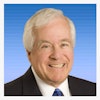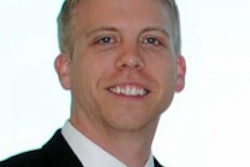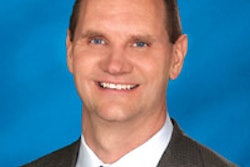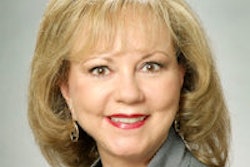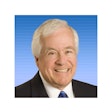
Is your dental practice collecting at least $1 million annually? If not, then you should listen to Matthew Krieger, DMD, a private practitioner in New Jersey, who explained at the recent Academy of General Dentistry (AGD) meeting how he collects at least $1 million annually by sticking to some fundamental strategies.
Like it or not, a dental practice is a business that must adhere to basic principles, such as making a profit and attracting new customers, to survive and thrive, Dr. Krieger said during a well-attended session at AGD 2015 in San Francisco.
"It's very easy to lose track of what's going on in the more important part of our business, which is the business of dentistry, not the practice of dentistry," he said. "You own a company that must make a profit to stay in business. You are in retail sales and service; what you sell is healthcare."
“You own a company that must make a profit to stay in business. You are in retail sales and service; what you sell is healthcare.”
Dr. Krieger runs the coaching program Million Dollar PPO and is also a full-time, "wet finger" practicing dentist who works Monday through Thursday.
"I do root canals, crowns, implants, and surgeries, just like you," he told the group. He started his practice in 2002 in northern New Jersey. In 2014, he had $1.4 million in gross collections.
Attracting and keeping new patients
The average dental practice has four team members (including the dentist) and four dental chairs, maintains 35 clinical hours weekly, is open 50 weeks annually, collects $750,000 a year, and brings in about 15 new patients per month, Dr. Krieger said. He noted that the average dentist has been practicing for 30 years but acquires zero net new patients.
"I'd rather see you get 10 new patients a month and keep every one of them, [rather] than getting 20 new patients per month and lose 12 of them," he added. "It's also much less expensive to keep them than to get them."
Patients have no idea whether or not you're a good dentist, he said.
"They don't know the difference between a 50-micron margin and a 20-micron margin," Dr. Krieger told the group. "Most of your patients ask a couple of questions: 'How much will it cost, and can I eat after it?' 'Is this going to hurt, and can I go to the gym afterward?' "
Little things count
What patients care about, according to Dr. Krieger, is whether there's pee on the seat in the bathroom, whether parking is easy, the convenience of the practice's hours, whether they can pay with credit cards, and if the front desk staff is rude.
"Those are the things that shape their experiences more in your practice than whether or not tooth No. 2 has a fifth cusp of Carabelli and if it's got translucency to it," he said.
To prepare for retirement, dentists must be as good at overseeing their business as they are at practicing their dental skills, Dr. Krieger advised.
"We're so entranced by that marginal fit that what's going on at the front desk escapes us for years and years," he said. "And then we end up in our 50s and 60s with a business that's sort of 'meh' and not as profitable as we'd like, and not enough money in the bank to retire."
PPOs and fees
The issue with being in preferred provider organizations (PPOs) has nothing to do with PPOs and everything to do with fees, he said.
"The marketplace, insurance companies, the dentist down the road, Heartland -- someone else determines how much the market will bear for your product," Dr. Krieger said.
 Matthew Krieger, DMD, founder of Million Dollar PPO.
Matthew Krieger, DMD, founder of Million Dollar PPO.Dentists are dependent on fees but can't control them, he pointed out, so the only thing they can do is be as competitive as possible.
"How does your practice compare to others?" Dr. Krieger asked. "We compete with one another: The guy down the road takes your patients and you take his. You want more and he wants more. There's definitely competition."
Patient care and a patient's experience are a priority, he noted.
Among other questions, his patients usually ask whether he's an in-network provider with Aetna PPO and whether they'll get the lowest price if they come to him.
Managed care doesn't work in dentistry because overhead rates are so high, Dr. Krieger noted. Fee-for-service dentists can raise their fees, but most dentists are in PPOs, so the only thing they can do to increase revenue is attract new patients while providing more treatments.
"So instead of seeing four patients for an hour and doing four crowns, I can see two patients, for two hours each, and do two crowns on each patient," Dr. Krieger explained. "It's much easier in turnover, much lower overhead, and it's the same hourly collections rate."
"To be profitable, we've been taught for 100 years, is to have higher fees, but the reality is we have to sell more stuff," he said.
Too much data
Dental school stresses educating patients about their teeth, but giving patients too much information only confuses and overwhelms them, Dr. Krieger said.
"If you spend time with your patient explaining the pros and cons of various treatments -- composites versus amalgams, versus inlays, versus gold, versus hybrid resins, versus ceramics, versus implants ... you give them an hour lecture on the importance of bone grafting, they're not buying," he said.
Humans do not buy based on data, they buy based on emotion, Dr. Krieger said.
"Humans default to the 'no' decision when they're confused, not to the 'yes' decision," he said. "Give them a whole boatload of data and scare the crap out of them, and then they say something like, 'I have to talk to my husband about this.' They're going to leave and not buy."
Dr. Krieger said if he can't sell a case in about a minute, the patient isn't going to buy it no matter what he says. The more time a dentist spends in the treatment room talking to the patient, the more sales go down.
The person most likely to sell in a dental office is the hygienist, because he or she puts patients at ease, Dr. Krieger said.
"Team members, tell your dentist: 'When you're in the room, you screw up the sale!' " he advised.
Dr. Krieger also stressed the importance of cross-training all staffers.
"Everyone in the office should know how to post a check," he said. "The single most important factor affecting productivity in PPOs is efficiency."
"If you change the policies, procedures, and protocols of how the business is actually run, people buy more stuff," he concluded.
